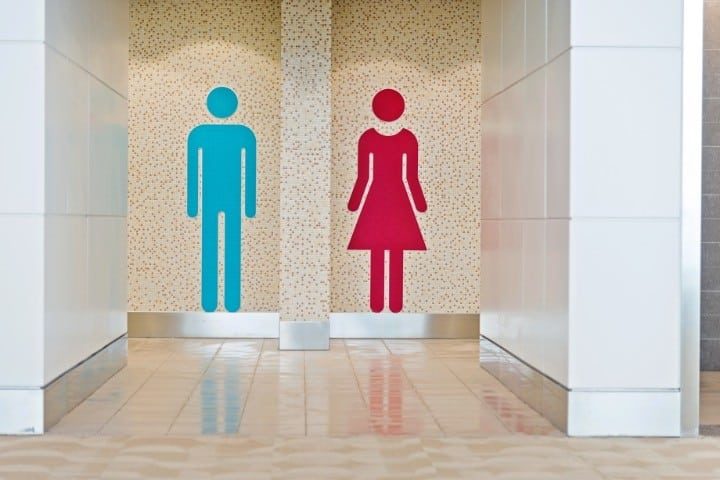
The Kansas Senate set the legal standard on basic biology on Thursday as they became the first chamber in the nation to pass legislation that simply defines within state law the immutable biological differences between male and female. This measure, the Women’s Bill of Rights, challenges the woke agenda of the Left that has attempted to redefine principal biology to mean whatever an individual decides their sex is, by describing an individual’s biological sex as either male or female at birth.
With transgender athletes, “gender-affirming” care, and drag shows being a visible part of the front lines in the growing culture war on sexual identity, this legislation pushes back by distinguishing between the sexes in school sports and at all government and public locations, including prisons, detention centers, shelters, locker rooms, restrooms, and more.
Republican Senator Renee Erickson explained to The Washington Times that “What this does is simply codify in the law the definition of sex.”
The Women’s Bill of Rights measure is one of many that conservatives in several statehouses are proposing on transgender issues. According to ABC News, gender-rights advocates believe the proposed measures are a “sweeping effort to erase trans people’s legal existence, deny recognition to nonbinary or gender-fluid people and ignore those who are intersex — people born with genitalia, reproductive organs, chromosomes and/or hormone levels that don’t fit typical definitions for male or female.”
The American Civil Liberties Union (ACLU) stated in a press release that the Kansas measure “codifies into law a right to exclude transgender people based on outdated and inaccurate definitions of sex and families, essentially attempting to remove trans people from athletics, restrooms, locker rooms, domestic violence shelters, and other necessary spaces.”
Noting the growing number of proposed gender-related measures nationwide, the ACLU press release shared they are “tracking 321 anti-LGBTQ bills this session, 10 of which are in Kansas.” Micah Kubic, executive director of ACLU-KS, said, “Legislative attacks against the trans community and the rhetoric that follows have consequences. As misinformation flourishes, violence against the trans community nationally and statewide is higher than ever.”
According to the Times, Sen. Erickson responded to the opposition by saying that the Women’s Bill of Rights measure “does not deal with gender identity…. It simply says that in existing statute or law, where there is a definition of sex, it means biological male and female as determined at birth. That’s very factual, it’s very objective.” The Times continued:
“There are legitimate reasons to distinguish between the sexes with respect to prisons, domestic violence shelters, rape crisis centers and other areas where safety and privacy are needed,” [Erickson] said. “This bill does not create any new rights or entitlements. It simply codifies the definition of sex as biological male and female in existing statutes and laws.”
The Times also reported that “Kansas state Sen. Pat Pettey, a Democrat, took issue with the measure’s name as the Women’s Bill of Rights”:
“As we heard in committee, it might be better if we were talking about the things that would help women’s rights, and that would be equity in pay, access to child care, and considering our human rights being balanced between men and women,” she said on the Senate floor. “I think this is poor legislation, unnecessary and does nothing to talk about women’s rights.”
Other states are considering or have considered similar measures. ABC News reported:
Oklahoma’s Legislature is weighing a similar proposal, while North Dakota lawmakers are considering a resolution that would urge public schools and other “public entities” to distinguish “between the sexes according to biological sex at birth.” Mississippi lawmakers had three proposals like Kansas’, but none advanced this year.
New Hampshire, Tennessee and Texas also have proposals to define male and female in state law, and a Republican lawmaker in South Carolina has proposed an amendment to the state’s constitution to declare that legally, a person’s gender would be based on anatomy at birth, not a “psychological, chosen, or subjective experience of gender.”
The Kansas bill has passed the Senate and is expected to clear the Republican-controlled House, though it likely faces a veto from Democratic Governor Laura Kelly. The Times reports Kelly
previously vetoed two bills that would have banned male-born competitors who identify as female from girls’ sports.
“We do have a Democratic governor, and we fully expect that she will veto this bill, which just goes to show her extreme position on this,” Ms. Erickson said. “It does not reflect the majority of the people of Kansas. The people want this. It’s common sense. It’s the right thing to do.”




